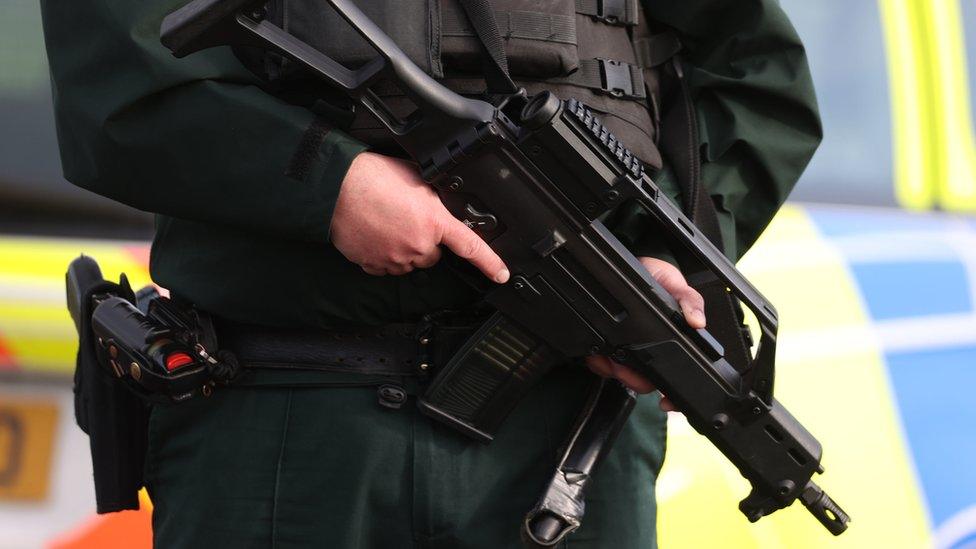Young people 'being groomed' into paramilitary violence
- Published
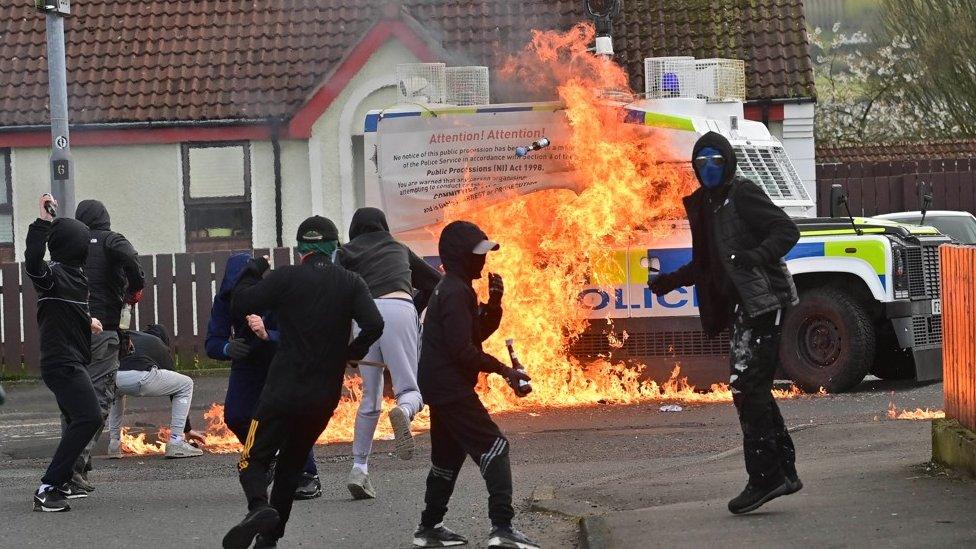
Hooded teenagers were among those involved in the violence
Young people are not aware that they are being "exploited and groomed" into criminal violence by paramilitary groups, an academic has said.
Petrol bombs were thrown at officers by young people at an illegal republican parade in Londonderry on Monday.
Dr Colm Walsh of Queen's University Belfast said some children in deprived areas are routinely targeted to "incite and engage in criminality".
On Tuesday police found a suspicious object in Derry's City Cemetery.
It was discovered in the same area in which participants in Monday's parade removed and burnt paramilitary-style clothing.
The cemetery is closed to the public and a nearby house has been evacuated as police carry out their public safety operation.
"We fully understand the level of concern and anger in relation to this but we have absolutely no option but to take this action," said Ch Supt Nigel Goddard.
"A cemetery is where people pay their respects in memory of their loved ones and this callous and provocative move flies in the face of that."
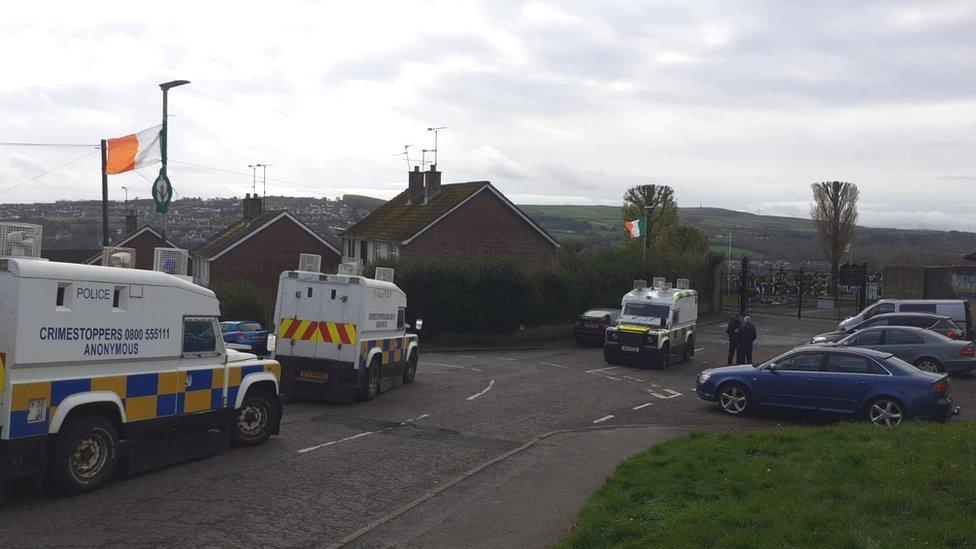
The City Cemetery is closed as police conduct searches in the area
Shortly after Monday's Easter parade commenced in the Creggan area of Derry, petrol bombs and other objects were thrown at a police vehicle
Masked youths were observed making petrol bombs and participating in the attack.
'Endemic violence'
The Police Service of Northern Ireland (PSNI) said none of its officers were injured in the incident but described the violence as "incredibly disheartening".
Dr Walsh said the scenes were sadly not surprising given recent research carried out by Queen's University Belfast.
"We have clusters of areas where violence is still quite endemic and young people are routinely incited to engage in criminality and violence," the education and social sciences expert told BBC News NI.
"One of the differences with the type of violence that we saw in Derry on Monday was that it was very publicly on display with a lot of media in the area.
"The scenes were pretty depressing given that we are approaching the 25th anniversary of the Good Friday Agreement.
"We saw pictures circulating of young people involved that couldn't be any older than 12 or 13."
Dr Walsh said that was not just an issue in Creggan but in various places across Northern Ireland.
'Paramilitaries foster mistrust'
He said that paramilitaries in both loyalist and republican communities were "very good at fostering mistrust" and that can often "create an illusion of risk".
"Young people are looking for safety first and foremost and what paramilitaries are good at is creating an illusion that they are unsafe," he said.
"Some young people still believe that paramilitaries perform some sort of function and part of that function is that they protect them and protect their communities because they can't trust other agencies to protect them."
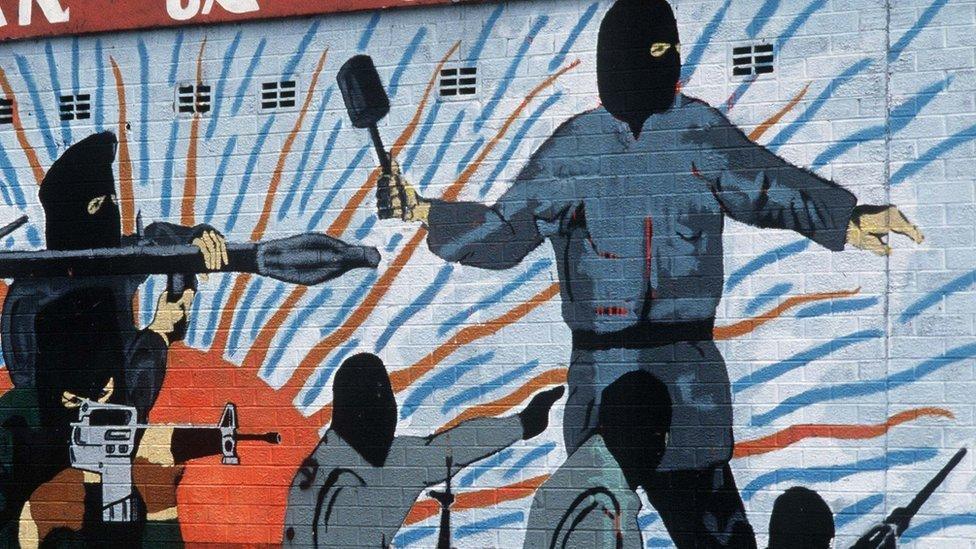
Paramilitaries in both loyalist and republican communities foster mistrust, says Dr Walsh
Dr Walsh said that fostering of mistrust was targeted and made some young people think that "outsiders wish them harm and are a threat - like statutory organisations, particularly the police".
He said the reason some young people then took to the streets was because they wrongly believed in a sense that they were protecting their own area.
He said coercion, intimidation, extortion and incitement into criminality could manifest in many areas and was something those living in these communities were often left to deal with on a daily basis.
Safeguarding issue
Many children engaging in those acts did not fully understand the danger they were putting themselves in, said Dr Walsh, and many victims of criminal exploitation rarely see themselves as victims.
"There is a massive issue around safeguarding for young people caught up in this type of trouble," he said.
"This just doesn't happen over a matter of hours or days, young people are groomed into behaviours over months and over years."
Dr Walsh said more had to be done to help make children engaging in violence more aware they were being exploited.
He said a key finding of his research was that the absence of capable guardians within schools, homes or community settings put young people at greater risk of exploitative adults.
"When you don't have those capable guardians there are other adults who will fill that vacuum and will try and incite the types of behaviour that we saw on Monday which will put them and others at risk."
- Published10 April 2023
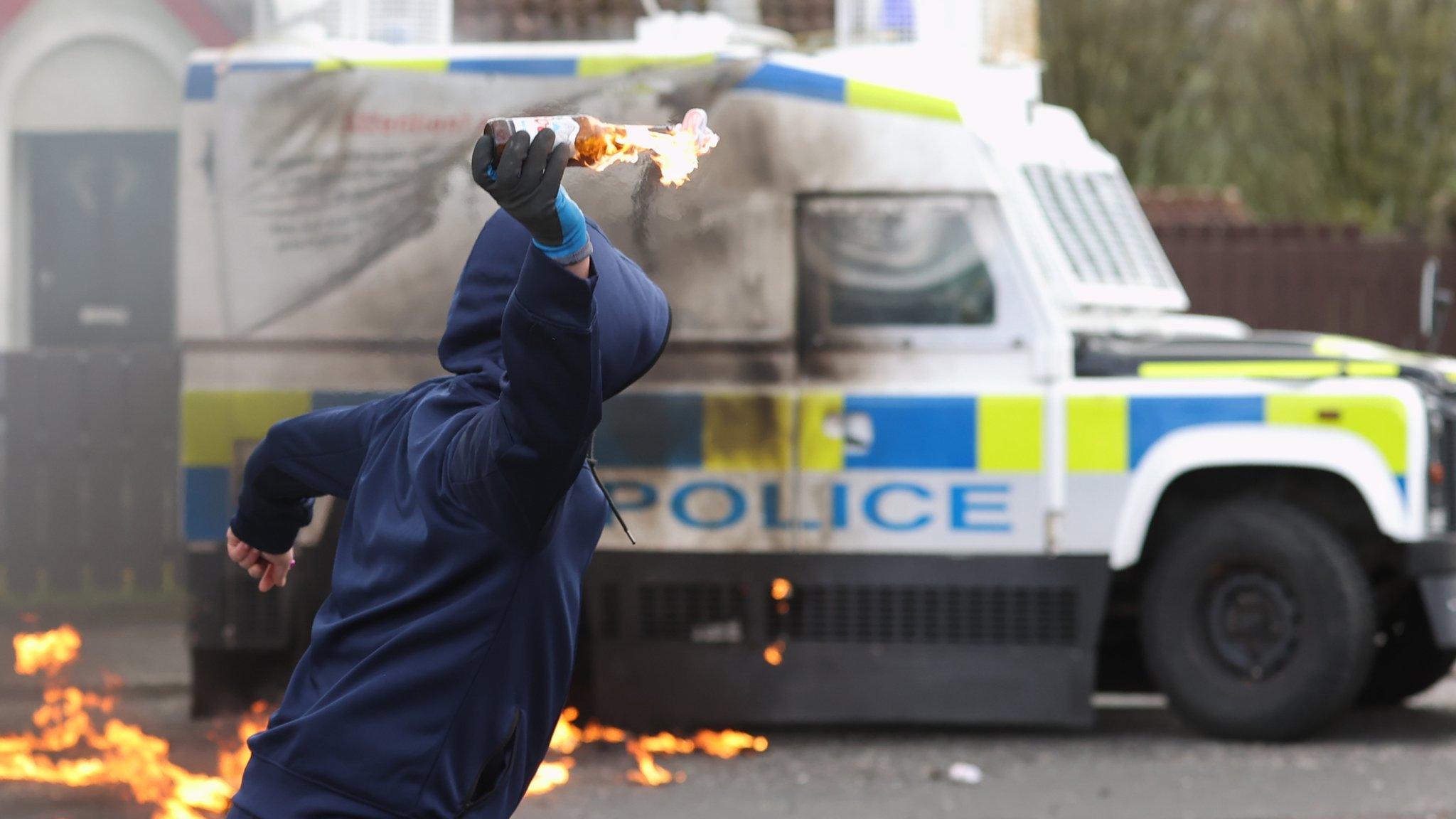
- Published7 April 2023
